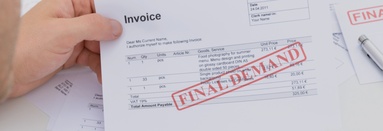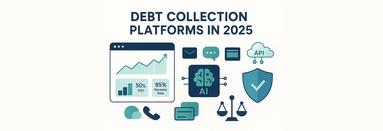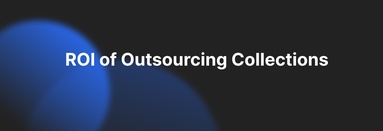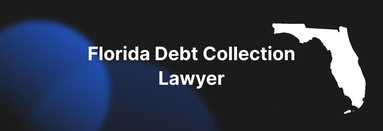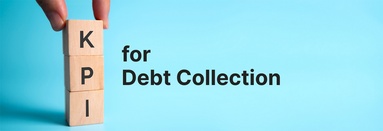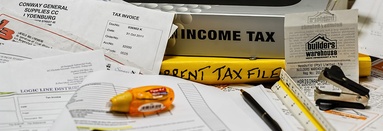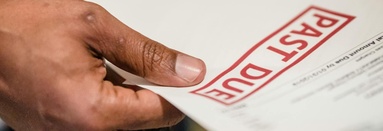Debt collection is a capability that every business needs to develop. If you're running a small business and don't have the time or money to hire a professional debt collection agency, then you need to start learning how to collect your debts yourself. If you're not sure what steps to take, keep reading this article for some helpful advice.
The Debt Collection Process: A Delicate and Contentious Task
Debt collection process can oftentimes be a sensitive affair. The debtor may feel that they are being harassed or bullied into paying the money back when they don't have the means to do so. Debt collectors should always keep this in mind when speaking with debtors; even if you aren't personally feeling sympathetic toward them, your tone of voice will speak volumes about how you feel about them as human beings.
It's important for debt collectors to know when enough is enough--that point where the collector has done all he or she can do without risking his/her job or reputation as an effective collector. While every situation is different, there are some general guidelines for when this point has been reached.
If there's no response from the debtor after repeated attempts at contact (phone calls, emails), then stop calling or emailing until further notice and report back on your progress later on down the line; maybe try again later on (within reason) after giving some time for things like stress levels and other circumstances surrounding both parties' lives have changed slightly since last time around.
Debt Collection Strategies
Before diving into the various debt collection techniques, it's essential to understand that a strategic approach can significantly impact the success rate of recovering unpaid debts. Different situations may call for different methods, and using the right technique at the right time can help maintain customer relationships while still achieving the desired outcome. Below, we explore some of the most effective debt collection strategies that can streamline the process and improve recovery efforts.
Always get everything in writing
When it comes to debt collection, always get everything in writing. A signed agreement is your best assurance that you will be able to collect outstanding debts, so make sure that you have one before you start collecting any money from clients.
This includes agreements with the person or company who owes you the money, as well as any other details of how much they owe and when they are expected to pay it back. The more information you have on file when someone defaults on their obligation(s), the easier it will be for you to collect those funds later on down the line--and even if someone doesn't default right away (or ever), having documentation makes life much easier when making future business decisions.

Use the right tone
While it may be tempting to adopt a threatening tone, this is not one of the most effective debt collection techniques. Using intimidation or bullying can backfire, causing the debtor to feel resentful and less inclined to settle the debt. Instead, consider employing debt collection techniques that focus on being polite but firm, showing that you are serious about recovering what is owed without making the debtor feel intimidated. This approach can help maintain a constructive dialogue and improve the chances of successful debt recovery.
Be polite
When employing debt collection strategies, it’s essential for a debt collector to remain polite and respectful at all times. Remember, you are dealing with a business that may already be struggling financially and could feel embarrassed or ashamed about its situation. Avoid taking out any frustrations on the debtor; if you’re feeling upset or angry, consider stepping away from the call momentarily before continuing, so you don’t risk saying anything hurtful or insulting.
Using profanity or disrespectful language should be strictly avoided, as it can damage your company’s reputation and potentially escalate the situation. Profanity not only makes your approach appear unprofessional but could also result in legal consequences if the debtor feels threatened and decides to take action. Similarly, avoid making threats or using bullying tactics, such as saying, “I’ll have my lawyer contact you,” unless there is actually an attorney involved. Such approaches can worsen the situation rather than resolve it. Instead, focus on successful debt collection techniques that foster constructive dialogue without resorting to intimidation, as this helps maintain professionalism and increases the likelihood of reaching a positive outcome.
Don't threaten or bully.
- Don't threaten or bully.
- Don't threaten to harm the debtor.
- Don't threaten to harm the debtor's family.
- Don't threaten to harm the debtor's property.
- Don't threaten to harm the debtor's reputation (e.g., by telling everyone that they owe you money).
...but be firm.
- Be firm, but not aggressive.
- Be assertive, but not pushy.
- Be polite but clear in your communication with debtors and their families or employers if they are involved in the case (this is especially important when dealing with elderly relatives).
- Remain persistent in your debt collection efforts when contacting debtors by phone or letter. Don't give up at the first excuse or angry response; it may take multiple attempts before they agree to pay what they owe. Even then, be prepared for potential delays before the payment is actually received.

Get your facts straight and keep records updated
Accurate record-keeping is a crucial aspect of effective debt collection strategies. Maintaining detailed records of all communication with the debtor serves two important purposes: first, it allows you to demonstrate the effort made in attempting to recover overdue payments; second, if any issues arise later in the process (such as a judgment being vacated), these records can be valuable for an attorney or court clerk to review and determine whether there was any misconduct by either party during the collection efforts.
Keeping thorough documentation ensures clarity at every step, contributing to a smoother resolution of the case.
Communicate with all parties involved quickly and clearly, and make sure you're handling the situation professionally at all times
- Always communicate with all parties involved.
- Be clear, concise and professional at all times.
- Ensure that you are handling the situation professionally at all times.
Hire a Collections Attorney
Hiring a collections attorney is one of the most effective debt collection strategies to recover your money. An experienced attorney can navigate the complexities of the debt collection process more efficiently than an untrained individual. When selecting an attorney, ensure they have a proven track record in debt collection and possess specific experience with the type of outstanding debt you are trying to collect, whether it be consumer debt, business debt, or another category.
It’s also crucial that the attorney is well-versed in state laws and regulations that pertain to your specific situation. This knowledge is vital, as debt collection laws can vary significantly from one state to another, and having a skilled attorney who understands these nuances can greatly enhance your chances of a successful recovery. In summary, investing in a knowledgeable collection attorney can be a strategic move that significantly improves your debt recovery efforts.
Conclusion
We hope this article has provided valuable insights into the world of debt collections and how to approach it with professionalism. While hiring a collections attorney is a viable option, it is important to recognize that there are various debt collection strategies you can implement to improve your chances of recovering funds.
Additionally, exploring alternative methods, such as utilizing collection agencies or negotiating payment plans, can be effective ways to enhance your cash flow. By diversifying your approach, you can better navigate the challenges of debt recovery and create a more robust financial strategy.
For those looking for expert assistance, consider registering at Retrievables. Our platform connects you with experienced collection attorneys who can help you get your invoices paid and optimize your overall debt collection process!





